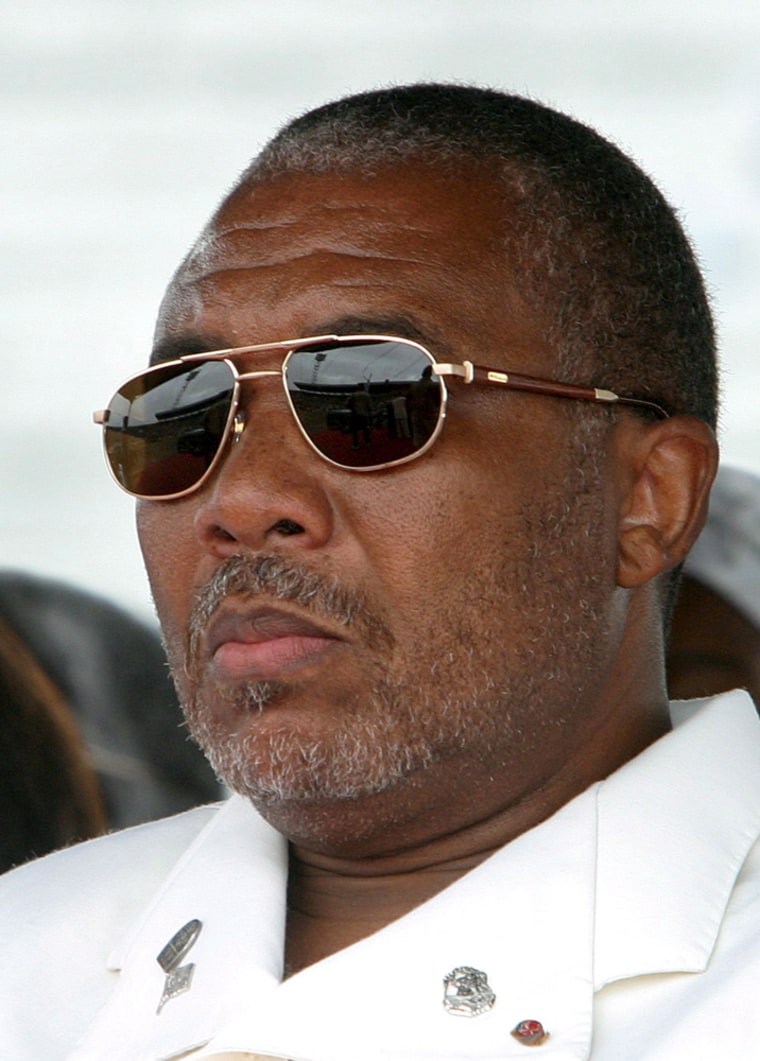An international expert in the trade in “blood diamonds” will be the first witness to testify at the war crimes trial of former Liberian President Charles Taylor when it resumes Monday, six months after it adjourned following a chaotic opening session.
Taylor, 59, is accused of terrorizing the people of Sierra Leone by orchestrating atrocities committed by militias known for hacking off their victims' limbs during the country's 10-year civil war, which ended in 2003.
Among the 11 charges against him are murder, rape, enslavement and conscripting child soldiers. Taylor, the first former African head of state to appear before an international tribunal, has pleaded innocent to all charges.
Prosecutors say Taylor's desire to get his hands on diamonds from Sierra Leone was one of the causes of his alleged involvement in the war.
Their first witness will be Ian Smillie, an expert on conflict diamonds — so-called blood diamonds. They are so named because they were smuggled out of Africa and the proceeds of their sale fueled wars across the continent in the 1990s and into the new century.
Smillie is the first of 144 prosecution witnesses, though trial attorneys expect only half of them to appear in person. The complex case will likely last nearly two years.
Militia victim to testify second
The second witness is slated to be a victim of the militias. Taylor's defense team does not deny the atrocities happened in Sierra Leone and has argued that calling victims is an unnecessary appeal to the emotions of judges.
But chief prosecutor at the U.N.-backed Special Court for Sierra Leone, Stephen Rapp, said he has an obligation to highlight the suffering of victims.
"We owe it to the victims to present some testimony in a live sense," Rapp said, so as "not to drain the case of the human element completely."
Rapp has said he summoned 77 victims or other witnesses to establish that crimes had occurred in each of several regions mentioned in the indictment. He expected only 10 to appear in court.
Later in the week, a former member of Taylor's inner circle will testify about how the former Liberian president allegedly controlled and encouraged militias in neighboring Sierra Leone. Nearly 60 witnesses will be called to draw links between Taylor and the militias and most are expected to do so anonymously for fear of reprisals by Taylor supporters.
Televised in Sierra Leone
The trial is being held in The Hague because of the belief that staging it in the Sierra Leone capital, Freetown, could spark new unrest there. However, the courtroom action is being beamed to Freetown and members of the public have been invited to watch at the court's headquarters.
"We will try in this early phase to lay out in broad strokes the basis of our case, and also the human element," Rapp said.
Taylor boycotted the start of his trial six months ago, claiming he would not be given a fair hearing, and fired his attorney. He has since appointed a new team led by experienced British lawyer Courtenay Griffiths.
Taylor, who has claimed he has no money, was being given about $100,000 a month for his defense, Rapp said, but the tribunal might recover those funds if what he described as Taylor's hidden assets can be found. The court's total budget last year was $36 million.
